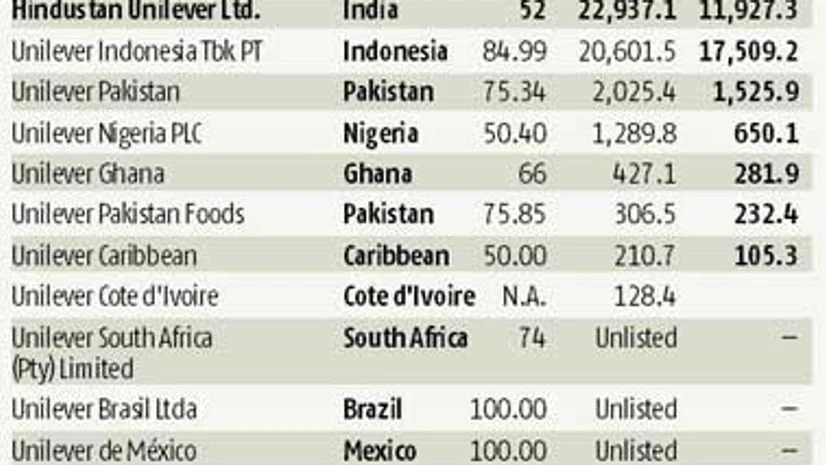Many of the Unilever subsidiaries in emerging countries are listed and traded on the respective national stock exchanges. This is especially true in the case of its subsidiaries in Asia and Africa. In most cases, Unilever holds significantly higher stake in its subsidiaries than its current 52 per cent in Hindustan Unilever. For instance, the Agro-Dutch consumer product major owns 85 per cent of its Indonesian subsidiary and economic interest in its two subsidiaries in Pakistan is over 75 per cent.
Unilever Nigera PLC is the only Unilever subsidiary where the parent stake is low at 50 per cent. In all, Unilever's eight subsidiaries are listed at the local bourses. In the rest of the word including Europe, North America and key emerging markets such as China, Turkey, Russia, Brazil, Mexico and Thailand, Unilever operates through wholly owned unlisted subsidiaries. Unilever South Africa is, however, an exception. Though the Anglo-Dutch major owns just 74 per cent stake in its South African subsidiary, it's not listed on the local stock exchange.

Hindustan Unilever is its most valuable subsidiary, closely followed by Unilever Indonesia. Hindustan Unilever also has the largest number of non-promoter (or minority shareholding) shareholders with their stake valued at little over $ 11 billion based on HUL's last closing price.
In all, Unilever's eight listed subsidiaries have a combined market capitalisation of of nearly $48 billion. Unilever stake in these subsidiaries is valued at $32.3 billion, nearly 55 per cent of which is accounted for by Unilever Indonesia while Hindustan Unilever accounts for a third. In comparison, the parent company Unilever is currently valued at around $128 billion.

)
